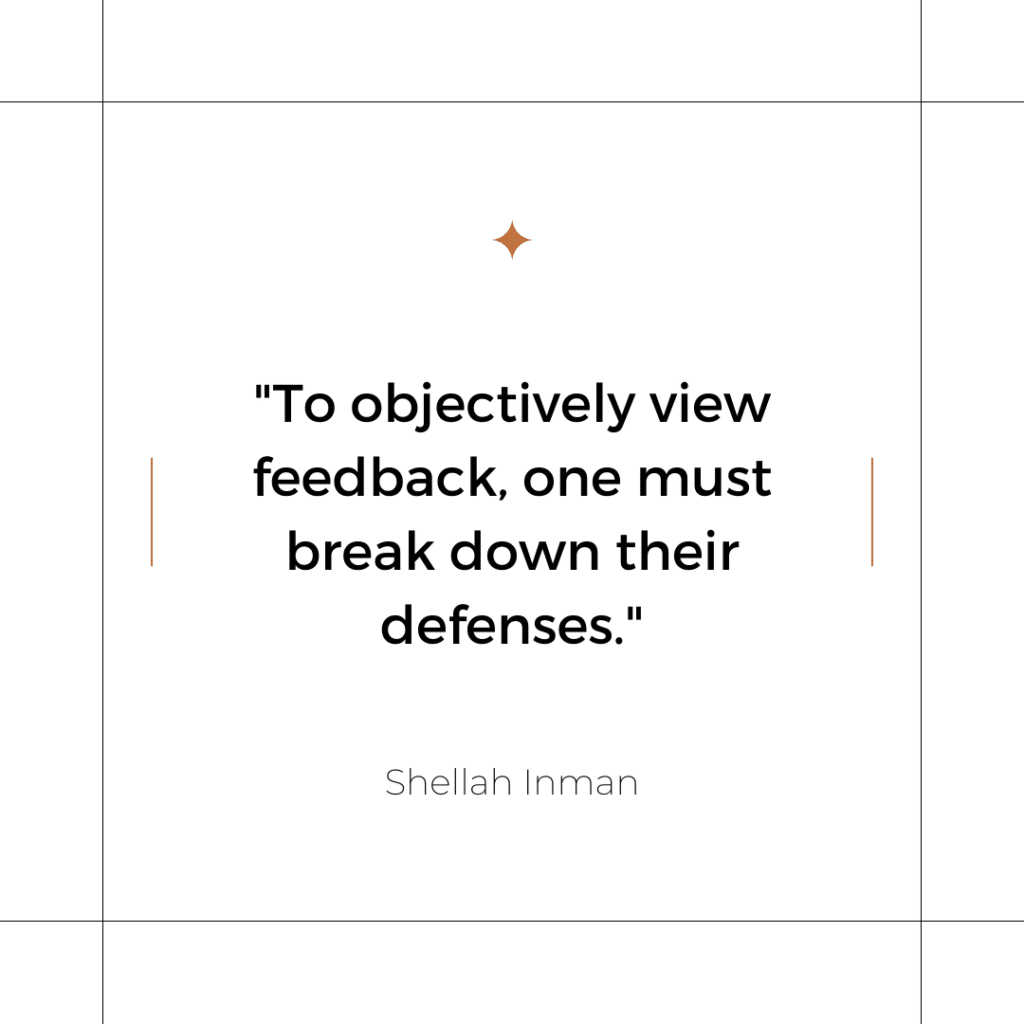
When we receive feedback on our writing, sometimes our brain likes to make us think that the feedback reflects our worth as a writer. When this happens, we get defensive and can’t objectively view feedback. But this can lead to us never growing as a writer. Because to grow as a writer, we need to know what we are not succeeding at to improve.
As the saying goes, you don’t know what you don’t know. So the only way to know is to objectively view the feedback we receive.
To help break down those defenses, I’ll share an exercise to help you see feedback for what it really is—a path to improving.
Notes about the exercise:
When you first incorporate this into your practice, it will take up a bit of time. But as you get used to it, you will start noticing that you will do it even without writing it out.
What you will need:
Paper and pen. Or you can use this spreadsheet.
How it works:
Adapted from this article about accepting criticism at work.
- Make four columns.
- Or use the provided spreadsheet.
- In column one, write down the exact feedback you received.
- For instance, if someone said they didn’t believe that your main character would be so mean in a scene, then you would write that down.
- In column two, list everything that is wrong with the feedback.
- This is where you get to put up your defenses, criticize, or say they are wrong and why.
- In column three, write what is right about the feedback.
- When receiving feedback, especially from someone who is not an editor, they may not know how to articulate what is wrong even though they know something is not right. So usually, after thinking about the feedback, you can deduce the problem. For instance, maybe your character would be mean in that scene. So then the problem might actually be finding a way to either show that being mean is part of your character’s traits or show the motivation for the meanness.
- In column four, write how you will fix the problem in your writing.
- This is where you decide what action you will take based on the feedback.
Why this works to help us objectively view feedback:
Discounting our feelings keeps our defenses up. But we can gain our equilibrium faster once we validate how we feel by writing why the feedback is wrong. This allows our walls to come down so we can objectively view the feedback and make our story better.
